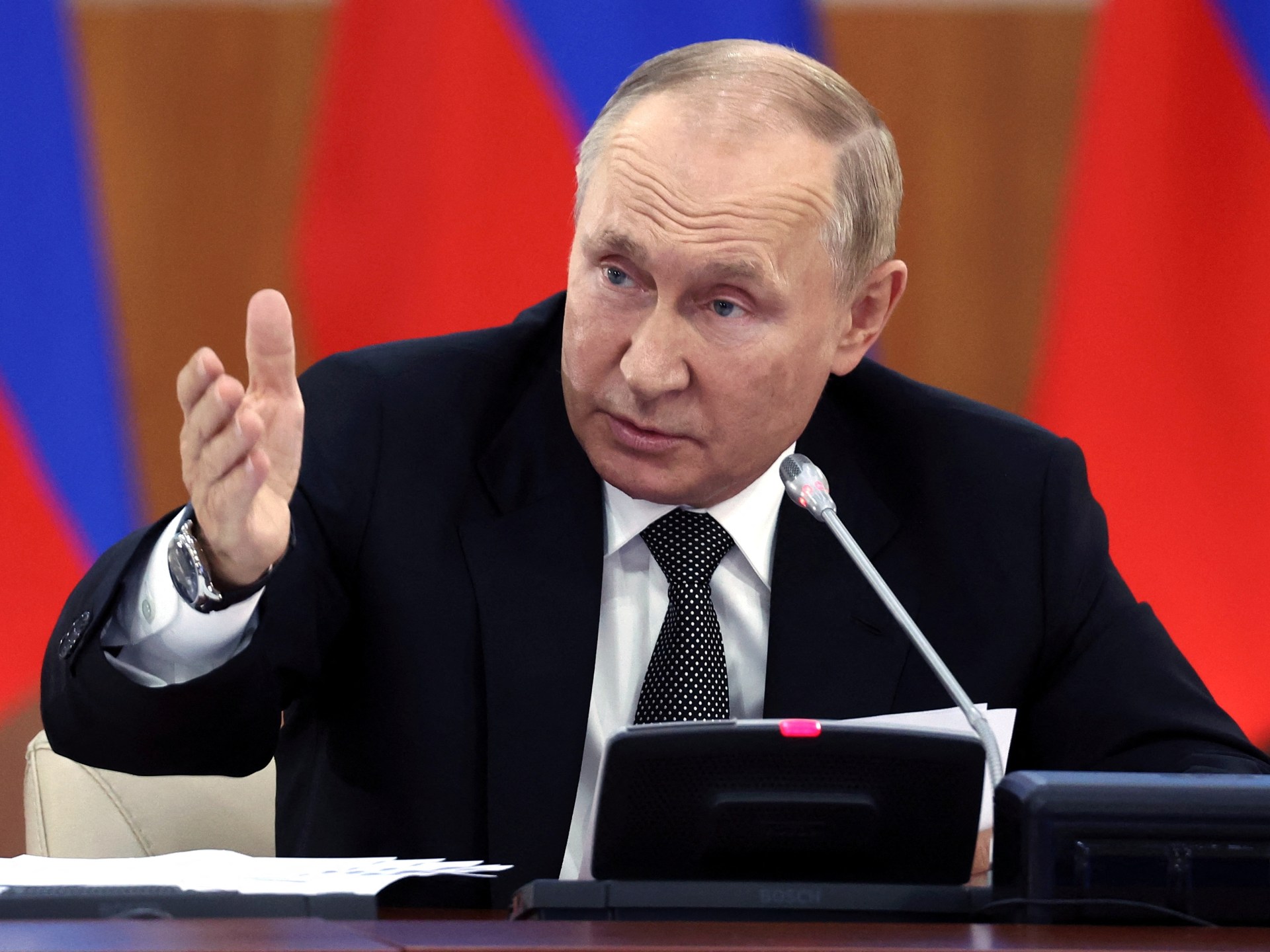The Washington Post published
an article
by writer David Ignatius about the activities of Russian President Vladimir Putin during a week, reflecting how he manages his country's internal and external affairs.
Before the writer describes the details of Putin's activities, he says that a closer look at Putin's publicly available calendar provides insight into a leader who oversees virtually every aspect of Russian life.
Hide the reality of the Ukraine war
He adds that Putin's publicly available schedule camouflages the brutal reality of his war in Ukraine by posing for photos as any traditional media-savvy Western leader would, shaking hands, getting briefings, meeting farmers, tax collectors and diplomats.
Ignatius says Putin's week-long schedule shows him filling his days with a regular series of meetings, video conferences and celebrations that show how he's trying to boost domestic trust even as he fights a failed war in Ukraine.
He's a wanderer, talking to his assistants about animal husbandry one day and artificial intelligence the next, and working hard on developing Russia's disparate ethnic groups.
Despite the disappearance of the Soviet Union, he remains in regular contact with the dissident leaders of the former republics.
His nostalgia for the Soviet era is palpable.
The writer continues and says that Putin works in secret, but he also leaves a public impact.
His official agenda is posted online and helps explain the practical side of his life.
Here is a summary of public events held by Putin over 5 days last month. They tell, according to Ignatius, how hard Putin has worked to maintain an appearance of normalcy as the war in Ukraine continues:
Monday, November 21: Chicken and taxes
Putin pays an almost obsessive attention to the minutiae of government.
The week began with a video conference on the state of Russia's livestock and poultry industry during which the Russian leader was briefed on pig farming, egg production and 6 other details of what he calls the "agro-industrial complex".
The other big event on Monday is a "business meeting" with Daniil Yegerov, head of the Federal Tax Service.
As usual, Putin grills his subordinate on the details, and it is as if he has what it takes to prove that he can handle every issue.
Putin's publicly available schedule hides the brutal reality of his war in Ukraine by taking pictures, as any traditional Western leader savvy in the media does (Reuters)
Tuesday, November 22: Castro and the Nuclear Icebreakers
Putin is as happy as the emperor on ceremonial occasions, and on Tuesday he celebrated, via video, with two new nuclear-powered icebreakers.
Later, he attended the unveiling ceremony of a bronze statue in Moscow honoring Cuban leader Fidel Castro.
Putin later met Cuban President Miguel Diaz-Canel.
Describing his meetings with Castro, Putin told his visitor, "I was very surprised by his immersion in detail... He knew and was able to analyze everything that was happening in the world."
Perhaps Putin is talking about how he sees himself.
Putin ends his official day with a phone call to Ilham Aliyev, the president of Azerbaijan, a former Soviet republic as angry as its peers at Russian dominance in the region.
Wednesday, November 23: Fertilization and a non-fraternal visit to Armenia
Putin's day begins with Dmitry Mazepin, Chairman of the Committee for the Production and Marketing of Mineral Fertilizers.
Mazepin provides the President with detailed statistics on fertilizer production.
Then Putin travels to Yerevan, Armenia — where Russian power is disintegrating — for a summit of the Collective Security Treaty Organization, an alliance of former Soviet republics that Russia regards as a copy of NATO but which has become a deeply divided and ineffectual group whose members quarrel with Moscow and with each other.
The background to the Yerevan meeting is the group's failure to prevent a 2020 war between two member states, Armenia and Azerbaijan, and Russia's failure since then to make peacekeeping plans a success.
The Kremlin website does not mention the Armenian president's disdain for Putin earlier that day by refusing to sign the organization's Russia-drafted statement.
Thursday 24 November: AI, Medal of Courage, No "Extraordinary Measures"
Today's big event is that Putin is attending a long and detailed discussion on "Artificial Intelligence Technologies for Economic Growth".
Putin discusses artificial intelligence with surprising intensity and length.
The printout of his notes is 42 pages long.
Putin asks interesting questions: What is the epistemological basis of intuition?
How can data improve governance?
What does artificial intelligence mean for recruitment?
How can data be hidden?
Putin took the time later that day to award the "Order for Courage" to a Russian propaganda blogger named Semyon Pegov who had stepped on a landmine and been wounded in Ukraine.
He concludes his day with a video conference with the Coordinating Council of the Russian Armed Forces.
Putin's website offers no hint that recent events have gone disastrous for Russia.
Friday, November 25: Grieving mothers, Chechen allies, and Russian arms makers
Two days before Mother's Day in Russia, Putin met a group of women said to be Russian mothers whose sons are fighting and dying in Ukraine.
He told them, "We share this pain, we understand that nothing can replace the loss of a son and a child."
What is striking about this hand-picked gathering is the number of women who are presented as from the Russian hinterland and ethnic minorities.
Putin next meets his war cabinet, the permanent members of his Security Council.
What is said here is not explained on Putin's website.
Next, he receives Ramzan Kadyrov, the leader of Chechnya, a region brutalized by Putin's "scorched earth" campaign in the early 2000s, and now supplying fighters to the Russian army in Ukraine.
Again, there are no details of their conversation.
The Russian president ends his day, just after 11 p.m., with a speech to a state company called Rostec that is struggling to keep producing high-tech weapons despite Western sanctions.

